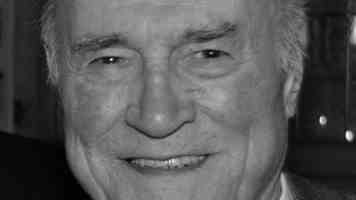Beer is a matter of taste, which contributes to its aroma but is not negotiable. At least not in Bavaria. Here the “Purity Law”, enacted in 1516, is paramount. Barley, hops and water are the three sacred ingredients of Bavarian beer. Would this still be the case if Siegfried Donhauser had not done meticulous research to uncover any violations? He was called the “savior of the purity law” and the “beer pope”, the results of his many years of work in the laboratory are considered “great moments in beer research”.
In the early 1960s, Donhauser succeeded in making it possible to provide proof of additives or even other types of grain, which is important for the Purity Law. At that time, the Bavarians were suddenly confronted with beers from other countries. What is now a matter of course in many pubs, namely a wide international selection of beers, outraged traditional beer drinkers at the time. As a trained brewer, Donhauser felt called upon to provide scientific evidence of violations of the Purity Law. His idea was to use an immunological method to uncover illegal additions to barley juice. The skepticism he received from his colleagues at the beginning spurred him on. Years later, Donhauser confessed to having thought in an interview: “I’ll show them”. And he showed it to everyone. The brewer developed a serum that can be used to demonstrate what, according to the Purity Law, is not permitted in Bavarian beer. This passionate research resulted in a dissertation that Donhauser submitted to Weihenstephan in 1964.
From a trained maltster to a university professor
Donhauser comes from the Upper Palatinate. He was born in Amberg on July 1, 1927, and from 1933 he lived with his family in Weiden. During World War II he was a paratrooper, was wounded and became a prisoner of war. In 1948 Donhauser graduated from high school and then did an apprenticeship as a brewer and maltster. He learned scientific work while studying brewing at what is now the Technical University in Weihenstephan. In 1953, Donhauser worked as an operations controller at the Munich Hofbräuhaus and as a master brewer and operations manager at Unionsbrauerei Fulda, among others. From 1968 to 1973 he was head of the Innstadt brewery in Passau, but kept his interest in research. In 1978 he habilitated on the subject of “Immunological investigations into the detection of additives in malting and beer production”. Based on blood group serology, Donhauser developed microbiological methods that allowed the structural comparison of the proteins of different types of grain. In 1980 he returned to his university, where he had once studied: he was appointed to the Chair of Technical Microbiology and Technology at Brewery II of the Technical University of Munich in Weihenstephan. Until his retirement in the 1990s, Donhauser devoted himself to beer quality control. Even after handing over his chair to Eberhard Geiger in 1995, Donhauser continued to work on immunochemical methods in breweries and on yeast care.
He was awarded the Bavarian Beer Order, the Bavarian Order of Merit (1986) and the Federal Cross of Merit (1982) for his services in enforcing the Purity Law and maintaining the Passau brewery site. In 2016, when asked by a journalist about the relaxation of the Purity Law, he replied: Anything that is not brewed in accordance with it cannot be sold as beer. It would then have to be called “beer-like drink”.
As has just become known, Siegfried Donhauser died on July 26 at the age of 95.

